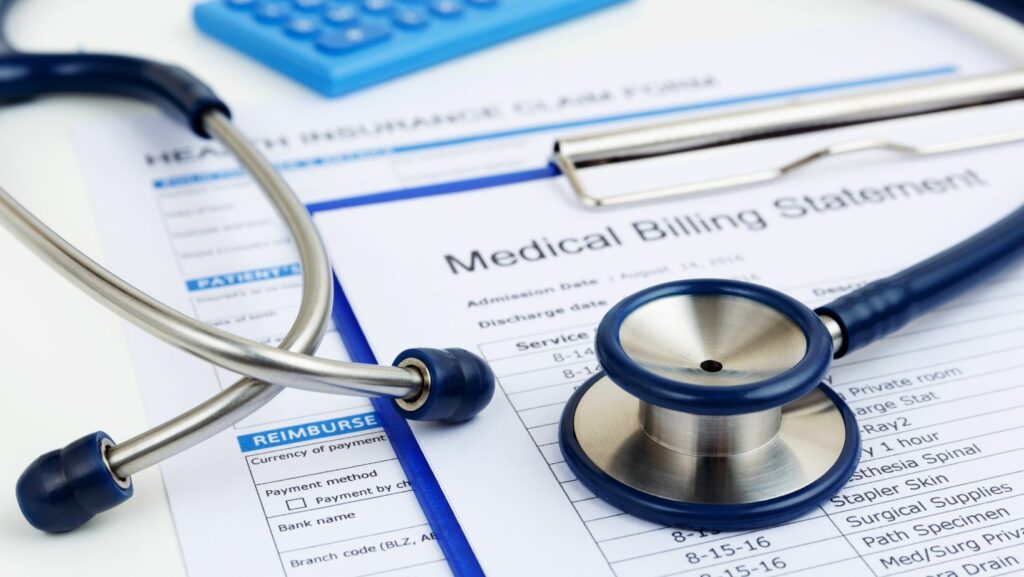
Medical billing is a crucial aspect of running a successful dental office. It involves submitting and following up on claims with health insurance companies to receive payment for services provided to patients. Understanding medical billing can significantly impact a dental practice’s financial health, ensuring that all services are appropriately compensated. We will explore the fundamentals of medical billing for dental practices, including the differences between medical and dental billing, the coding systems used, and tips for optimizing the billing process.
Understanding Medical vs. Dental Billing
Medical and dental billing seem similar, but they have distinct differences. Dental billing typically deals with oral health and hygiene procedures, such as cleanings, fillings, and extractions, and is billed to dental insurance companies. On the other hand, medical billing involves more complex procedures that may overlap with general health concerns, such as sleep apnea treatments, jaw surgeries, and certain oral infections. These procedures are billed to medical insurance companies. Understanding the distinction is essential because it determines which insurance provider to bill and which codes to use. Properly distinguishing between these two can prevent claim denials and ensure timely reimbursement.
The Importance of Accurate Coding
Accurate coding is the backbone of medical billing. The most commonly used coding systems in dental practices are the Current Procedural Terminology (CPT) and the International Classification of Diseases (ICD). CPT codes describe the medical, surgical, and diagnostic services provided, while ICD codes indicate diagnoses and health conditions. The correct use of these codes is paramount for successful billing. Incorrect coding can lead to claim rejections, delayed payments, and audits. Therefore, dental practitioners and their billing staff must stay updated with the latest coding guidelines and ensure meticulous attention to detail when coding each procedure.
Steps in the Medical Billing Process
The medical billing process in dental practices involves several critical steps. The first step is patient registration, where all necessary patient information is collected. This includes personal details, insurance information, and medical history. The next step is verification of insurance benefits, ensuring that the patient’s insurance covers the planned procedures.

Once verified, the dental office performs the necessary services, accurately documenting each procedure. After the service, the billing staff assigns the appropriate codes and prepares the claim. This claim is then submitted to the insurance company. The final step involves follow-up, where the billing staff tracks the claim status, addresses any issues, and ensures payment is received.
Common Challenges in Medical Billing
Medical billing in dental practices can be fraught with challenges. One of the most common issues is claim denials, often resulting from incorrect coding, incomplete documentation, or errors in patient information. Denials can significantly delay payment and impact cash flow. Another challenge is staying compliant with ever-changing regulations and coding updates. Failure to comply can result in audits and penalties. Also, dealing with multiple insurance providers with varying policies and requirements adds complexity. Effective management of these challenges requires ongoing education, attention to detail, and a robust billing system.
Optimizing the Billing Process
Optimizing the billing process is crucial for the financial health of a dental practice. One effective strategy is investing in comprehensive billing software that can automate many aspects of the process, reduce errors, and streamline workflow. Training staff regularly on the latest billing practices and coding updates is also vital. Additionally, a robust follow-up system ensures that denied or delayed claims are promptly addressed. Communication with patients about their insurance coverage and out-of-pocket expenses can prevent surprises and ensure smoother transactions. Dental practices can enhance their revenue cycle management and improve overall efficiency by optimizing the billing process.
The Role of Insurance Verification
Insurance verification is a crucial step in the medical billing process that can significantly impact the success of claim submissions. This process involves confirming the patient’s insurance coverage, including benefits, coverage limits, and exclusions. It is essential to verify insurance information before providing services to avoid potential payment issues later.

Accurate verification helps identify the extent of coverage for specific procedures, required pre-authorizations, and patient co-payment responsibilities. Dental practices can prevent claim denials and reduce the risk of delayed payments by ensuring that the patient’s insurance details are correct and up-to-date.
The Future of Medical Billing in Dental Practices
The medical billing landscape in dental practices continually evolves and is influenced by technological advancements and regulatory changes. Adopting electronic health records (EHRs) and electronic billing systems is becoming increasingly common, streamlining the billing process and improving accuracy. These systems allow for real-time updates and integration with insurance providers, reducing the likelihood of errors and enhancing efficiency. Additionally, the rise of telehealth services has introduced new billing challenges and opportunities, as dental practices must navigate billing for virtual consultations and remote treatments. Staying ahead of these trends and embracing technological innovations will be crucial for dental practices to maintain a competitive edge and ensure smooth billing operations in the future.
Medical billing for dental practices is a complex but essential aspect of managing a successful dental office. By understanding the differences between medical and dental billing, mastering accurate coding, following a structured billing process, addressing common challenges, and optimizing the overall billing workflow, dental practices can ensure timely and appropriate compensation for their services. This not only enhances the practice’s financial health but also contributes to better patient care and satisfaction. Effective medical billing is a critical component of a thriving dental practice.



